On Boulevard Waterloo in Brussels, the Churches of Scientology for Europe hosted a landmark conference centered on kindness, peace, and understanding among diverse communities. Organized under the stewardship of Eric Roux, a dedicated advocate for interfaith dialogue and harmony, the event brought together an array of voices from different cultures, religions, and backgrounds. Through powerful speeches and meaningful exchanges, the gathering emphasized the critical role of compassion and collaboration in addressing global challenges.
Kindness as the Foundation of Harmony
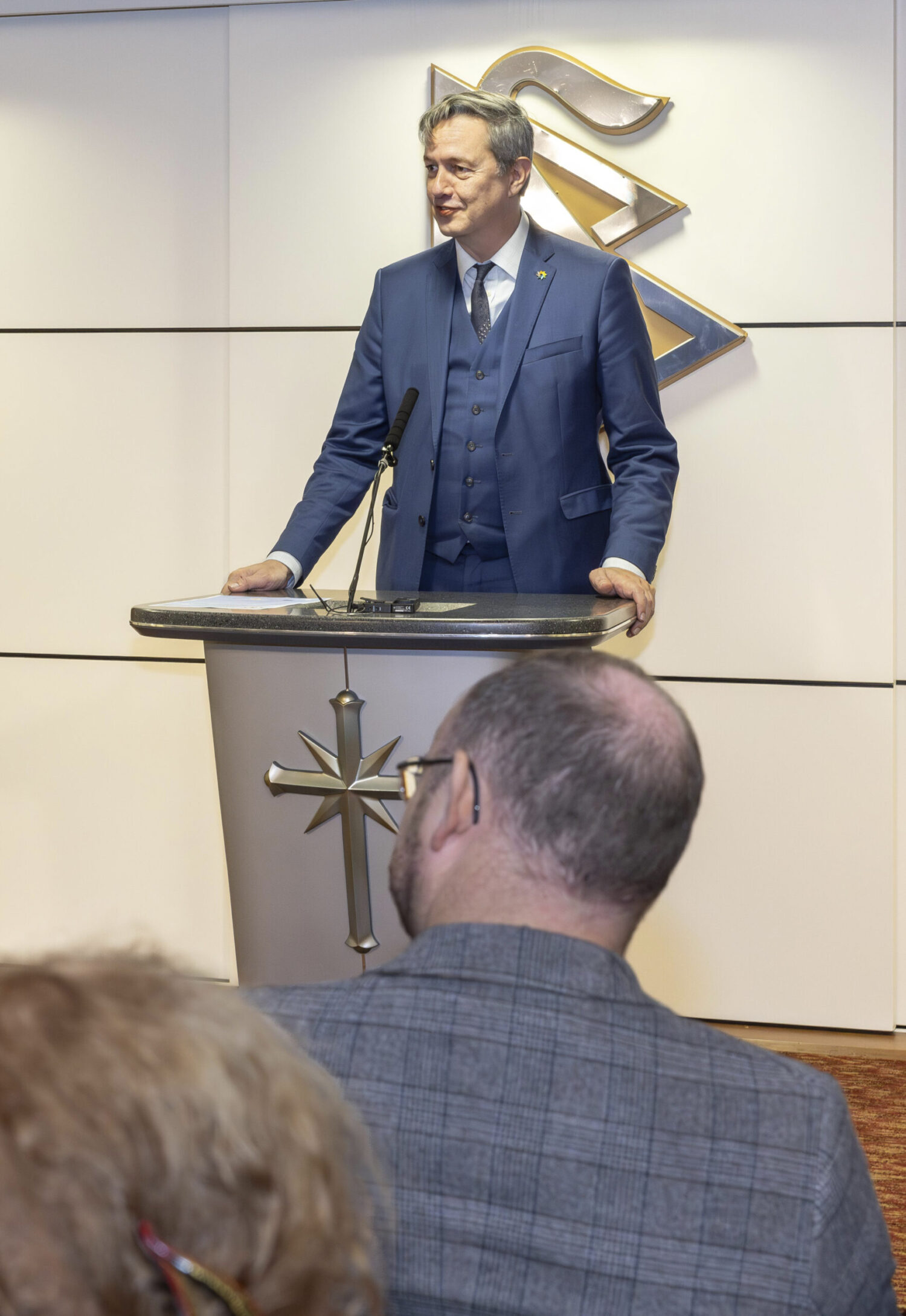
The conference opened with a call to embrace kindness as a universal principle. Eric Roux underscored the transformative power of simple yet profound actions, such as treating others with the same respect and care one desires. Speakers noted that kindness not only enhances individual interactions but also holds the potential to heal societal rifts and promote a culture of respect and inclusion.
In this spirit, references were made to the moral teachings of global religious traditions. Whether through Buddhist temples, Catholic churches, Synagogues or Islamic mosques, the message was clear: faith communities around the world possess immense potential to unite humanity through shared values of empathy and generosity.
The Cardinal’s Message: Compassion as a Moral Imperative
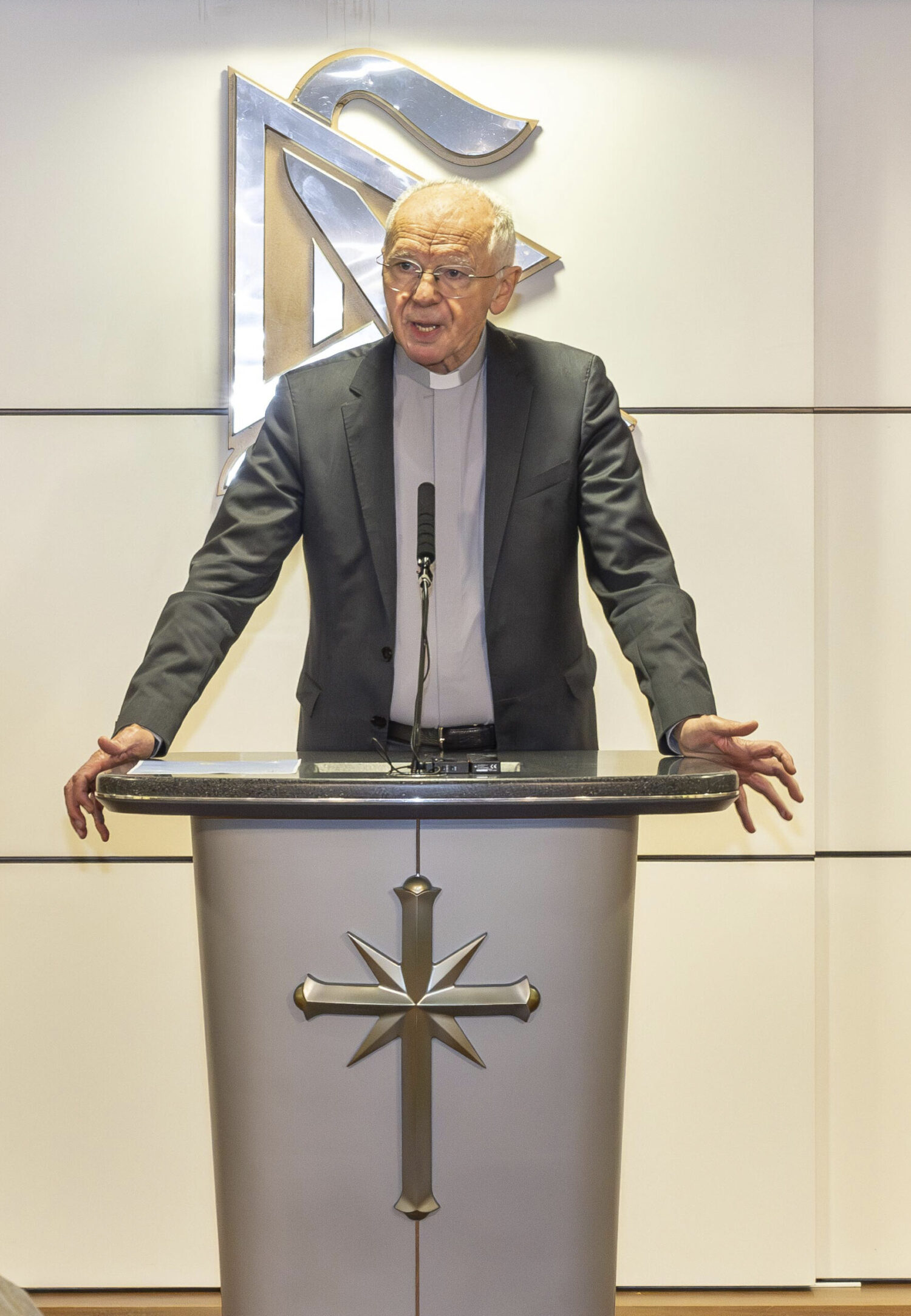
A highlight of the event was the address by Cardinal Jozef De Kesel, whose reflections captivated the audience. In his speech, the Cardinal emphasized the moral responsibility of individuals and institutions to act as catalysts for peace. Drawing from his deep theological knowledge and pastoral experience, he articulated the need for unity and compassion in a world increasingly divided by conflict and misunderstanding.
Cardinal De Kesel reminded attendees that faith must serve as a bridge, not a barrier, inspiring people to rise above prejudices and work toward collective well-being. He also invited the world to respect and value religions, Man being a religious being by nature. His words resonated as a powerful reminder that peace begins with understanding and that acts of kindness can ripple outward, creating meaningful change.
“It’s a trend that also exist in our secularized society, to marginalize, to privatize, to not take into account religions. But Man is a religious being, not that he is necessarily Christian, as he could be Buddhist, Jewish, from Scientology, or from any other belief, but he is searching for the meaning of existence. So it is important in our culture to respect and value religions.”
Cardinal Jozef de Kesel
Honoring Marc Bromberg: A Legacy of Peacebuilding
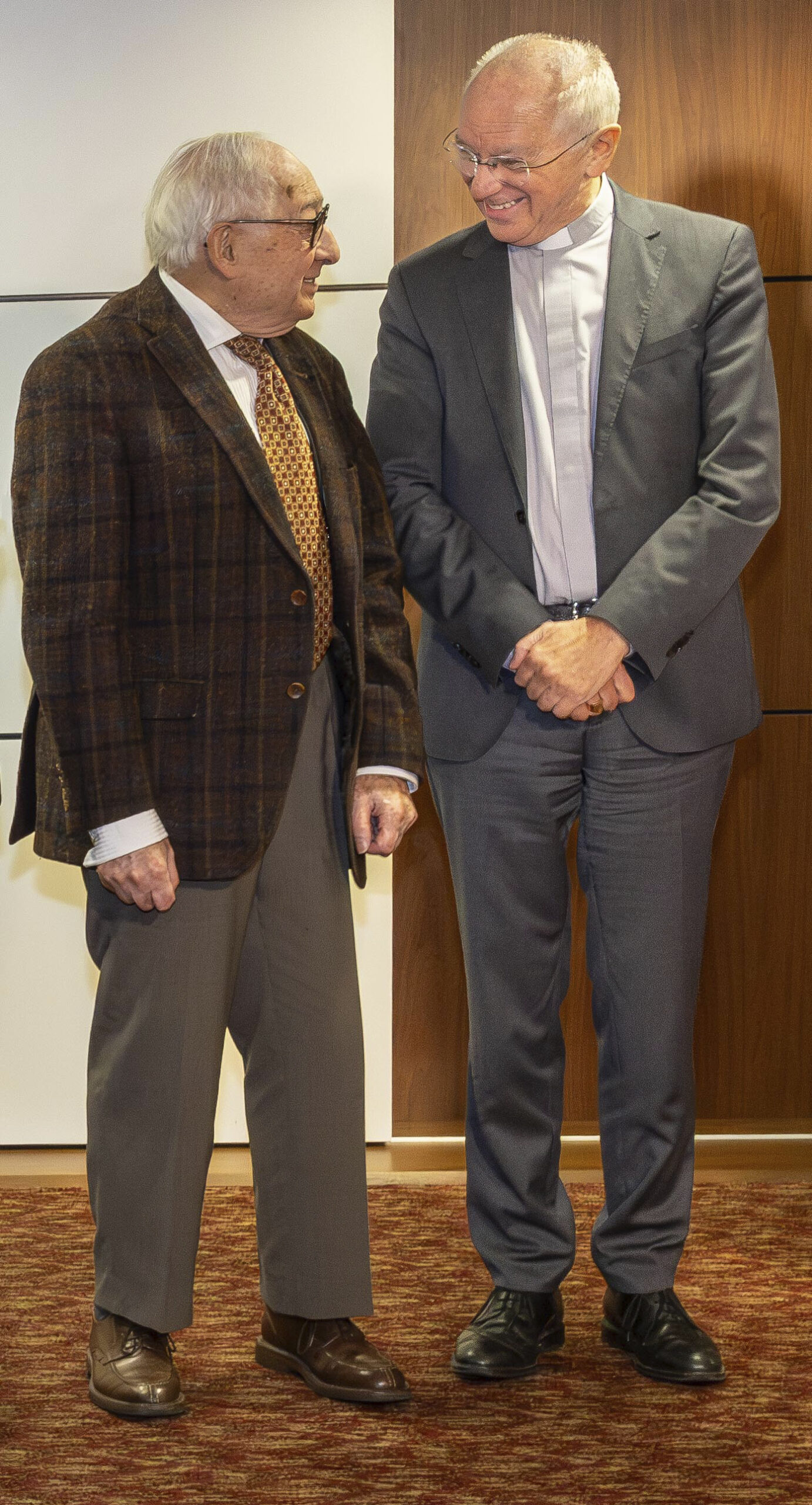
The event also served as an opportunity to honor the life and work of Marc Bromberg, a 93-year-old champion of peace and reconciliation, who announced his retirement.
Bromberg’s life story, marked by his experiences as a Holocaust survivor, deeply moved the audience. Fleeing Nazi-occupied Paris as a child, he grew into a tireless advocate for dialogue and understanding across religious and cultural divides.
Introduced by Eric Roux with a mix of humor and admiration, Bromberg reflected on his decades of work fostering interfaith collaboration and mutual respect from his position in the Church of Scientology, after his encounter with the religious philosophy developped by L. Ron Hubbard in the 1960s. He highlighted the importance of small acts of kindness in breaking down barriers and building a culture of peace. His decision to retire was met with an outpouring of gratitude and affection from those present, many of whom had worked closely with him.
Thomas Gergely: Exploring the Nature of Humanity
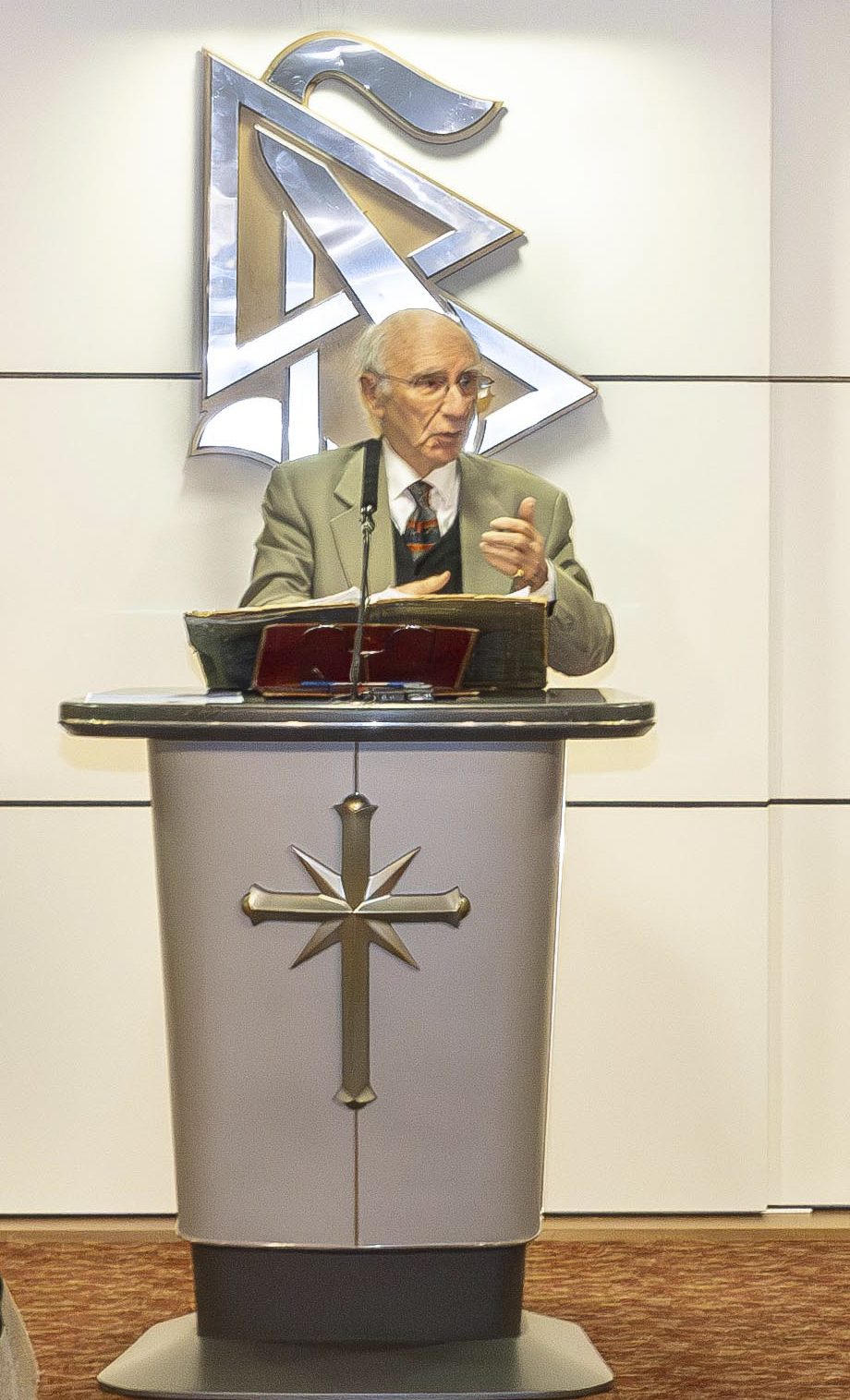
Renowned scholar Professor Thomas Gergely, Director of the Institute for the study of Judaism at the Free University pf Brussels (ULB) delivered a thought-provoking presentation on the essence of humanity. He questioned the essentialization of religion, as well as of the religious acts of reliance, as maybe the most critical factor in bias and prejudice against the other. Drawing on his extensive knowledge and experience, Gergely offered a profound exploration of human nature, urging the audience to reflect on what defines us as individuals and as a species, and how to avoid being directed by our own bias when it comes to religions.
His insights, both intellectual and deeply human, bridged abstract concepts with practical implications. His address left attendees with a sense of intellectual enrichment and moral responsibility.
Women and Youth: Pillars of Peacebuilding
The contributions of women and young people to the cause of peace were another focal point of the event. Madame Abdi Hafida, president of the Espoir et Sourire Association, shared her experiences advocating for family welfare and gender equality. She emphasized the importance of addressing the root causes of conflict, including inequality and systemic neglect.
Meanwhile, the creative potential of youth was highlighted through initiatives like the art exhibition The World I Want to Live In, organized by young Ukrainians. Featuring artworks from children aged 7 to 17, the exhibition illustrated the resilience and hope of younger generations, even in the face of adversity.
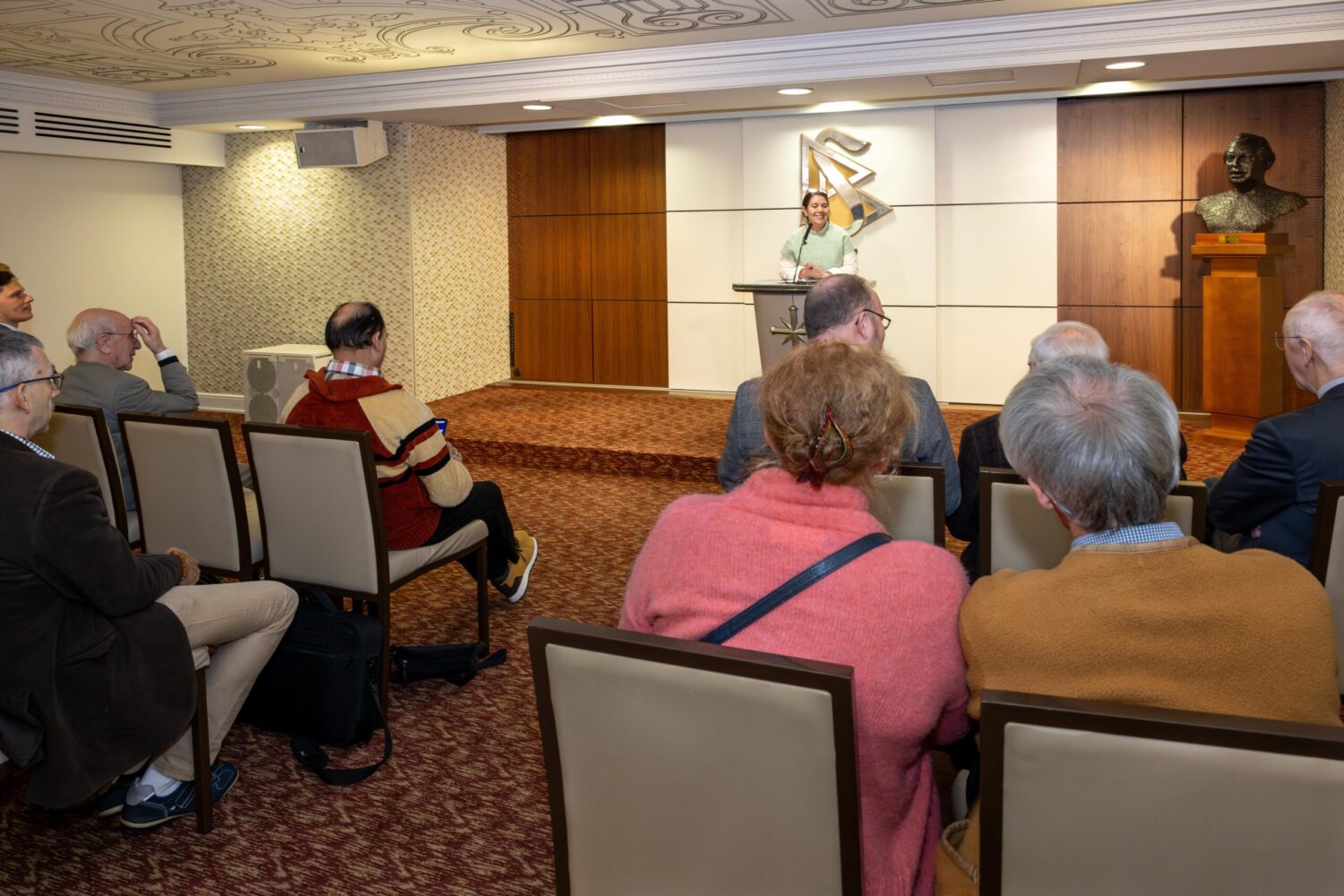
Rkia Tiar, President of the European Network of Women of Faith, delivered a compelling speech that focused on the vital role of women in peacebuilding and the necessity of fostering interfaith dialogue through education and technology. She emphasized the unique suffering of mothers during times of war, noting that their grief transcends borders as they mourn their children on both sides of conflicts. Tiar highlighted innovative ideas her network has explored, such as creating digital platforms for interfaith exchanges, organizing immersive cultural and religious experiences, and establishing incubators to support peace projects addressing social challenges like discrimination and refugee crises. She also advocated for greater use of art, media, and religious diplomacy as tools for promoting harmony. Tiar concluded with a powerful call to action, urging collaboration, visibility in the media, and education for future generations to ensure that the work of peace endures.
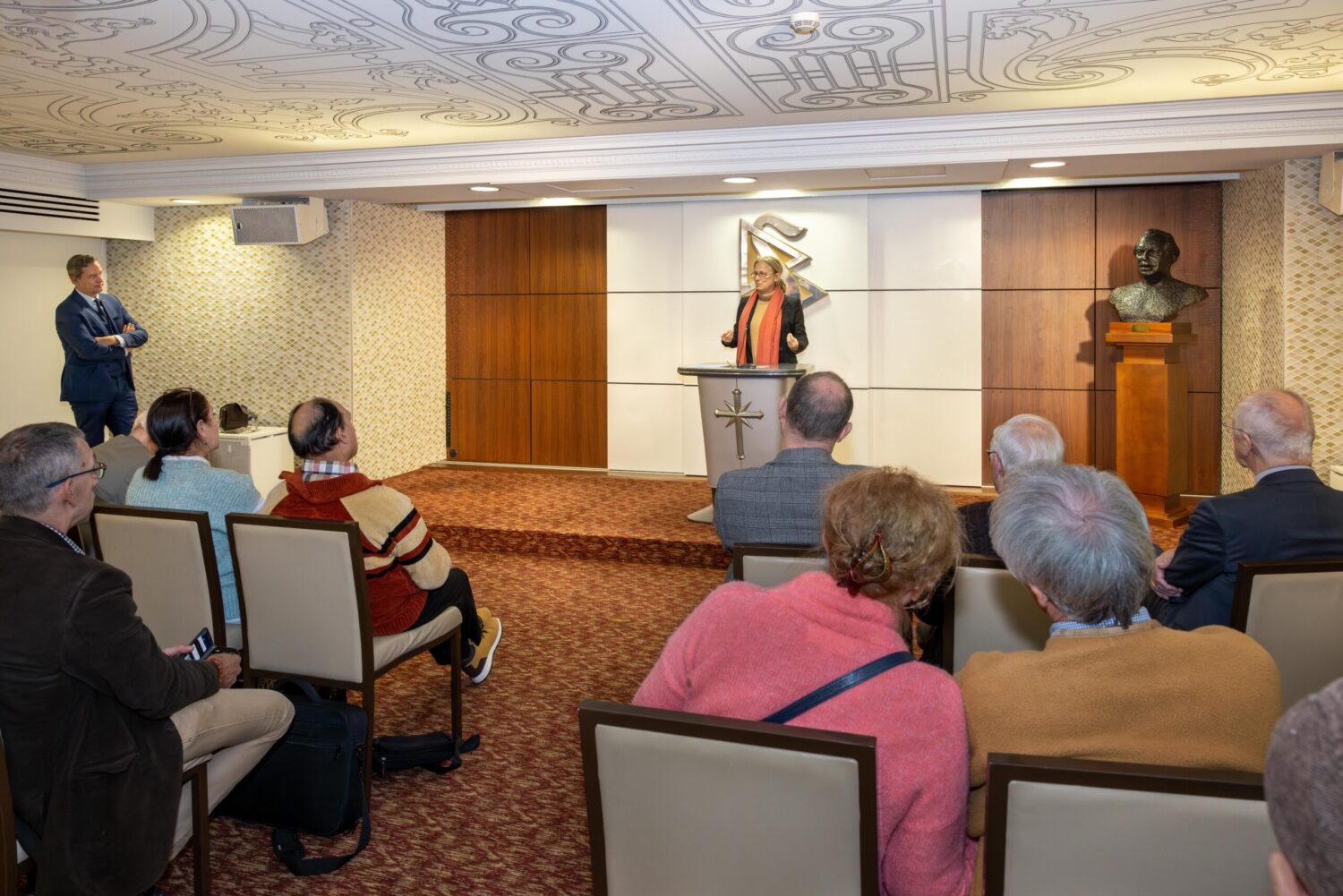
During the conference, interventions by Ines Wouters, Bhairavananda Sarasvati Swami, and Chantal Vanderplancke added significant depth and diversity to the discussions. Ines Wouters, a prominent legal expert and a Buddhist practitioner, emphasized the importance of safeguarding fundamental freedoms and fostering dialogue across religious and cultural lines, while explaining how Buddhism is an individual path to a non-conflictual attitude, and how transforming yourself may transform the world.
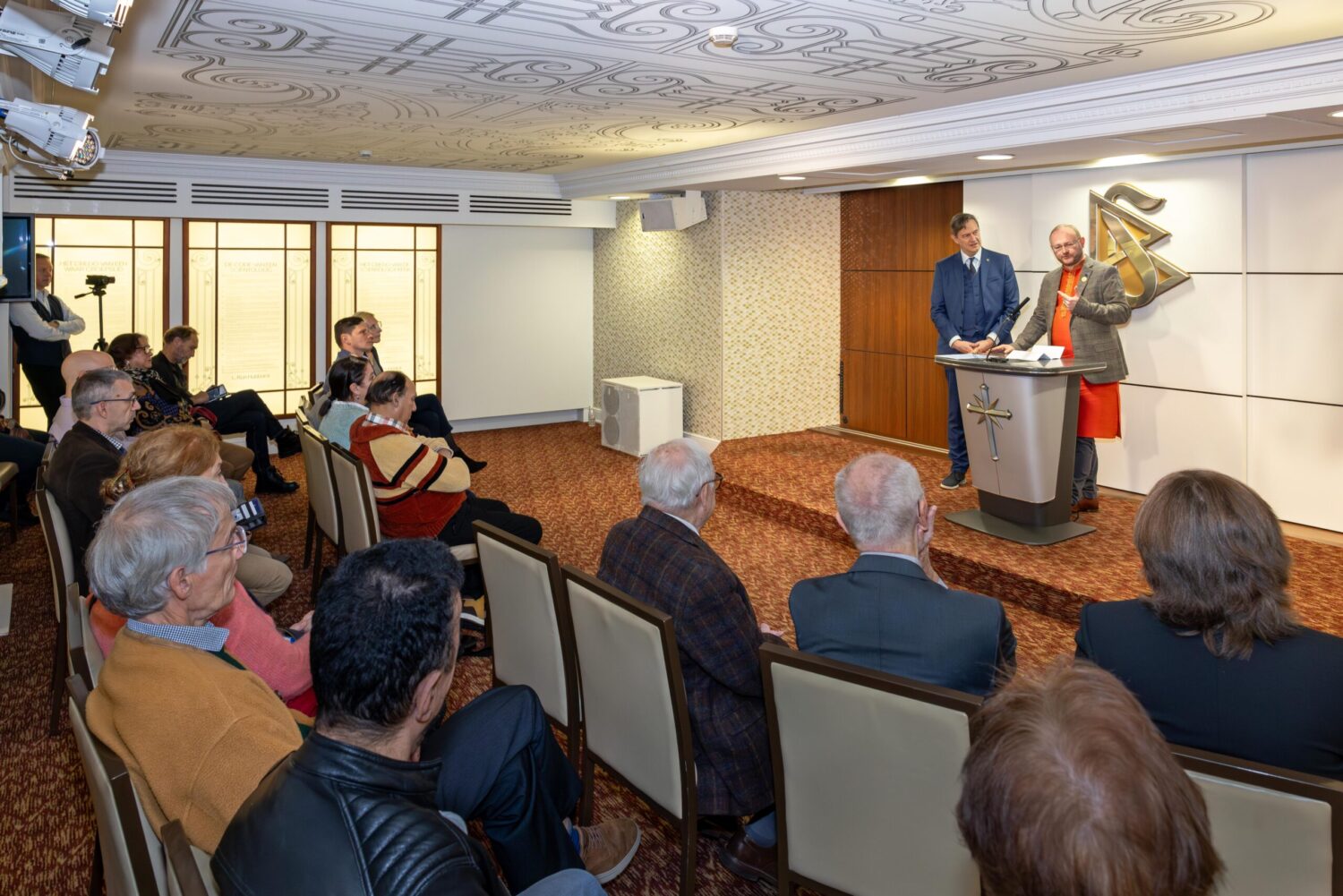
The Swami offered a spiritual perspective, reminding attendees of the timeless wisdom found in Hindu philosophy that emphasizes unity, compassion, and the interconnectedness of all beings, but also how interreligious and intercultural dialogue is the only way to understanding, which leads to peace. Chantal Vanderplancke, a Doctor in Theology from the Catholic University of Leuven, shared heartfelt reflections on how peace starts with the Heart, echoing the last encyclic from Pope Francis, Dilexit Nos (On the Human and Divine Love of the Heart of Jesus Christ). Their combined contributions enriched the conference, showcasing the multifaceted nature of efforts to build a more peaceful and understanding world.
Finally, Myriam Zonnekeyn, Director of External Affairs of the Church of Scientology in Belgium, spoke about the day of kindness and how kindness is a way to create a culture of peace amongst people belonging to diverse cultures and faith traditions.
As the conference drew to a close, Eric Roux thanked all participants for their contributions, noting the powerful synergy of diverse voices united by a shared vision of kindness and peace. The gathering was a testament to the enduring belief that empathy and understanding can overcome even the deepest divisions.
With an eye toward the future, speakers emphasized the importance of educating the next generation about human rights, cultural diversity, and the value of dialogue. By fostering these principles, they hoped to build a more compassionate and harmonious world.




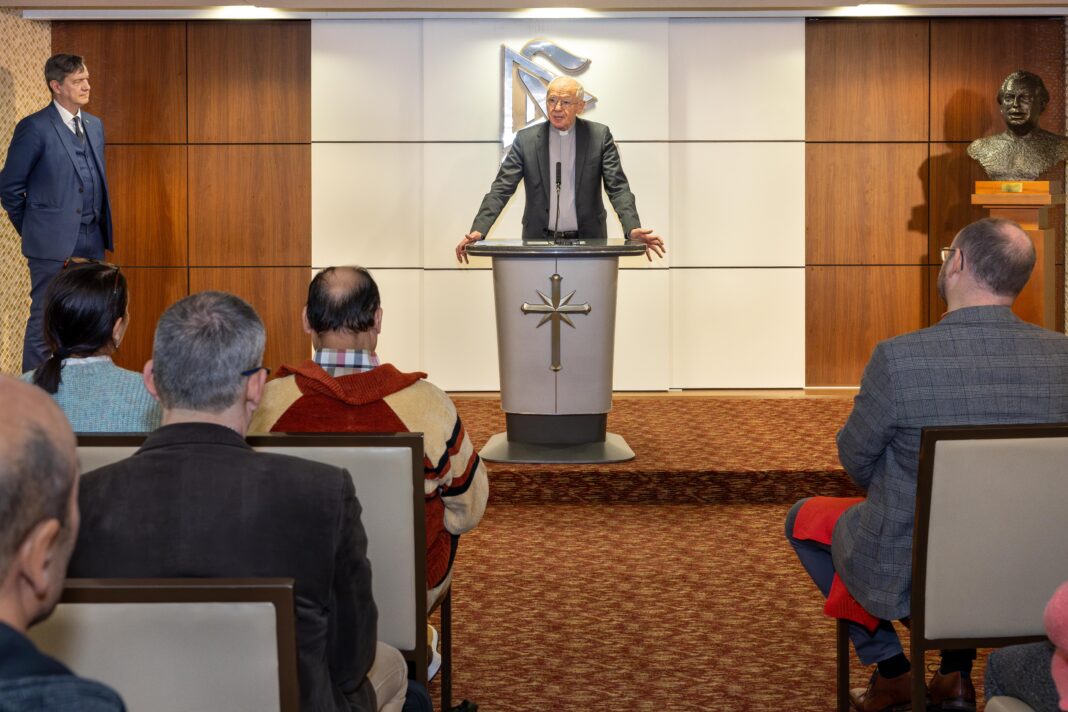
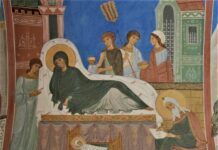
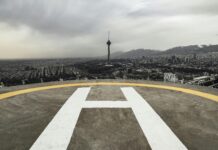
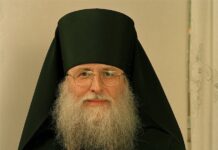





 English
English French
French Spanish
Spanish German
German Dutch
Dutch Italian
Italian Danish
Danish Portuguese
Portuguese Greek
Greek Russian
Russian Swedish
Swedish Bulgarian
Bulgarian Hungarian
Hungarian Catalan
Catalan Ukrainian
Ukrainian Polish
Polish Basque
Basque Chinese (Simplified)
Chinese (Simplified) Japanese
Japanese Hebrew
Hebrew Arabic
Arabic Swahili
Swahili Amharic
Amharic Irish
Irish Afrikaans
Afrikaans Albanian
Albanian Armenian
Armenian Azerbaijani
Azerbaijani Belarusian
Belarusian Bengali
Bengali Bosnian
Bosnian Cebuano
Cebuano Chichewa
Chichewa Chinese (Traditional)
Chinese (Traditional) Corsican
Corsican Croatian
Croatian Czech
Czech Esperanto
Esperanto Estonian
Estonian Filipino
Filipino Finnish
Finnish Frisian
Frisian Galician
Galician Georgian
Georgian Gujarati
Gujarati Haitian Creole
Haitian Creole Hausa
Hausa Hawaiian
Hawaiian Hindi
Hindi Hmong
Hmong Icelandic
Icelandic Igbo
Igbo Indonesian
Indonesian Javanese
Javanese Kannada
Kannada Kazakh
Kazakh Khmer
Khmer Korean
Korean Kurdish (Kurmanji)
Kurdish (Kurmanji) Kyrgyz
Kyrgyz Lao
Lao Latin
Latin Latvian
Latvian Lithuanian
Lithuanian Luxembourgish
Luxembourgish Macedonian
Macedonian Malagasy
Malagasy Malay
Malay Malayalam
Malayalam Maltese
Maltese Maori
Maori Marathi
Marathi Mongolian
Mongolian Myanmar (Burmese)
Myanmar (Burmese) Nepali
Nepali Norwegian
Norwegian Pashto
Pashto Persian
Persian Punjabi
Punjabi Romanian
Romanian Samoan
Samoan Scottish Gaelic
Scottish Gaelic Serbian
Serbian Sesotho
Sesotho Shona
Shona Sindhi
Sindhi Sinhala
Sinhala Slovak
Slovak Slovenian
Slovenian Somali
Somali Sundanese
Sundanese Tajik
Tajik Tamil
Tamil Telugu
Telugu Thai
Thai Turkish
Turkish Urdu
Urdu Uzbek
Uzbek Vietnamese
Vietnamese Welsh
Welsh Xhosa
Xhosa Yiddish
Yiddish Yoruba
Yoruba Zulu
Zulu